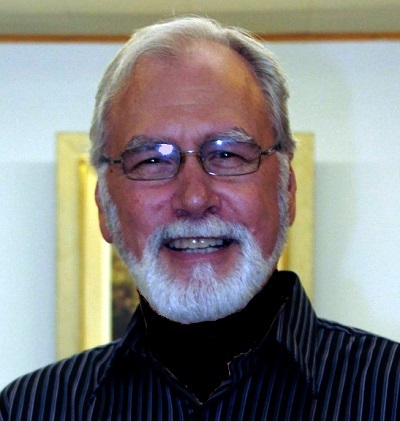3 Hostile Questions – and Some Cordial Answers From an Evangelical Pastor

Chris Katzer's title sounds friendly enough, "Dear Conservative Evangelicals, I Have a Question" (The Christian Post, Voices March 9). It turns out that he actually has - three - questions, with quite a bit of commentary lodged between. And the accusative tone of his questions, as well as his commentary, isn't friendly at all. He has made up his mind that we, who hold traditional Christian beliefs and conservative values, are an ugly bunch. He says that we use the Bible, guns and politics to steal, kill and to destroy others. He says we're addicted to white, male, heterosexual power and privilege. He even accuses us of worshiping "many things of Satan".
Wow! I'm not going to respond to this diatribe. That would be a dead end that would waste my time as well as yours. Instead we'll follow a course that shows some promise.
I will simply re-word Katzer's questions, omitting his prejudicial terms and tone. Then I'll give some answers that may be helpful to believers, who need encouragement in the face of challenges to our faith. The answers may also be useful to unbelievers if they have not completely closed their minds to us.
Question #1. Why do you put absolute faith in the books included in your Bible, rather than simply trusting Jesus and the Holy Spirit?
Answer: We believe in the Hebrew Scriptures (the parts of the Bible used in Israel in Jesus' day) and in the Greek Scriptures (the parts of the Bible written after Jesus' resurrection and ascension). And we believe in Jesus who is the living element that binds these two parts of the Bible together.
Jesus knew what he was doing when he expressed his absolute confidence in the Scriptures - as then known in Israel - and when he called and commissioned the apostles to pass along his message, which they did in both spoken and written form.
In short, ours is: (1) a Prophetic faith (that is Old Testament based) (2) a Messianic faith (with Jesus at the center, holding the Testaments together) and (3) an Apostolic faith (that is ultimately expressed in the New Testament).
Katzer suggested, in his commentary, that Jesus did not trust in the Scriptures of his time because, he says, Jesus overturned at least parts of the Bible. But Katzer is mistaken in this. Jesus overturned - traditional misunderstandings and distortions of the Scriptures - not the Scriptures themselves.
Katzer is very concerned about which books ought to be included in the Bible and thinks that the "canon of Scripture" is a very confusing topic. However only a small number of the books that we now consider to be Scripture were ever called into question. A limited number of ancient believers, from specific localities, had doubts about these few books. But those books were eventually declared to be part of the Christian canon by the church as a whole, and we can give good reasons why. We can also make a solid case for the ultimate exclusion of a few other books that some local churches had previously accepted or were unsure of.
Katzer stated that Jesus and the Holy Spirit are the real sources of his faith, not the Bible. But he could not have known about either Jesus or the Spirit except through the written Word of God. The Bible, the Spirit and Jesus are all bound together. If Katzer truly relies on Christ, then he is relying on one who said that every little detail of the Law and the Prophets would be fulfilled. However since he declares that the Law and the Prophets are defective, Katzer disqualifies himself as a follower of Christ. The so-called Jesus that he has constructed in his mind is not Jesus as he is revealed in the Bible.
Question #2. What biblical grounds can you give for believing that Jesus' followers are justified in using a weapon - with deadly force - in defense of self, home and family?
Answer: Jesus spoke directly to people who had the job of enforcing the law and waging war - the soldiers of his time. Yet he commended the faith of the centurion, for example, and granted the blessing of God's healing to the centurion's servant. Jesus said that this Gentile soldier had more faith then he had witnessed in all Israel. Yet he did not tell the centurion to give up his sword and his position.
Similarly, John the Baptist, who Jesus declared to be a prophet and more than a prophet, was asked by soldiers what they should do. John gave them specific instructions. But, in the pattern of Jesus, he did not tell them to stop being soldiers.
If we had space, we could go on and show examples that demonstrate the consistency between Jesus, on this issue and the rest of the Bible - the Old Testament as well as the New. But surely you can read the Bible and figure this out for yourselves.
So you can see why many of us are convinced that there is no conflict between being a follower of Christ and also possessing and using weapons to defend - public - peace and security as well as - personal - peace and security, especially when officers of the law are few and far between in highly populated urban areas and in thinly populated rural areas.
Question #3. Why do you support President Trump when his moral character is so out of step with Jesus' teachings?
Answer: I voted for the president because the other candidate advocated policies that, I believe, would have been disastrous to our nation - morally, socially, economically and globally.
I did not vote for the candidate of my choice because I believed that he was the most moral person who is capable of doing the job. The sad truth is, neither candidate comes close to filling that bill.
And one of the candidates has a husband who used the oval office, and its adjoining spaces, in a most shameful way - a husband she had previously defended by trying to discredit women who brought disturbing accusations against him.




























